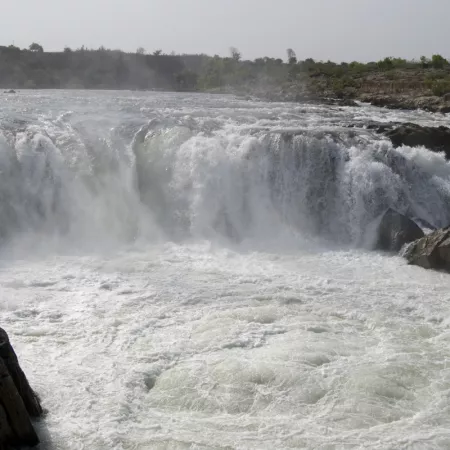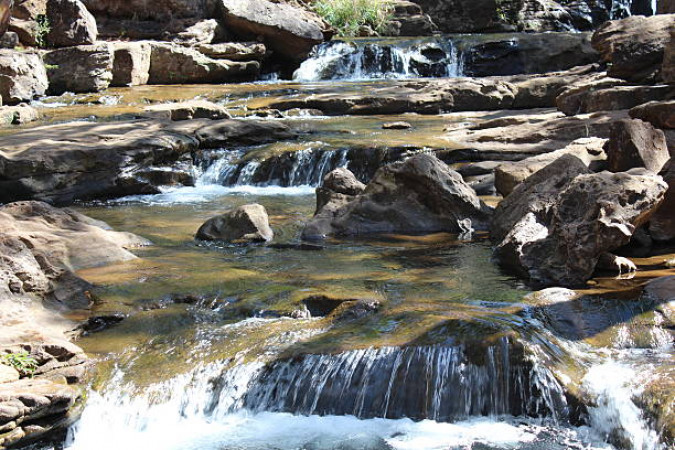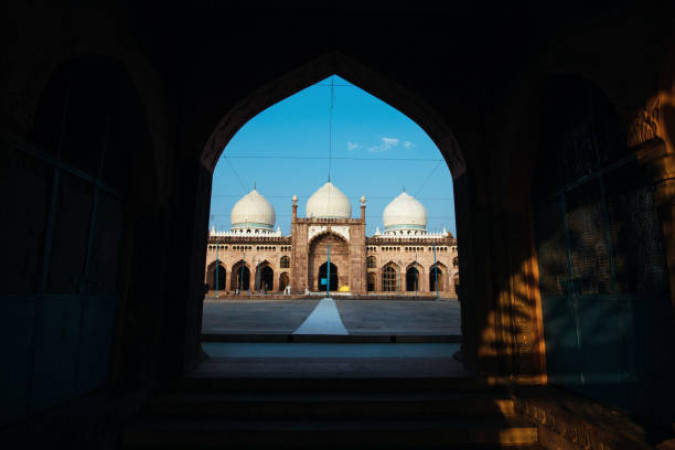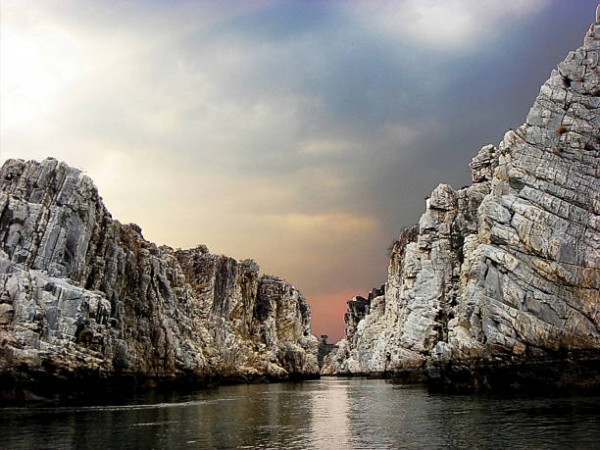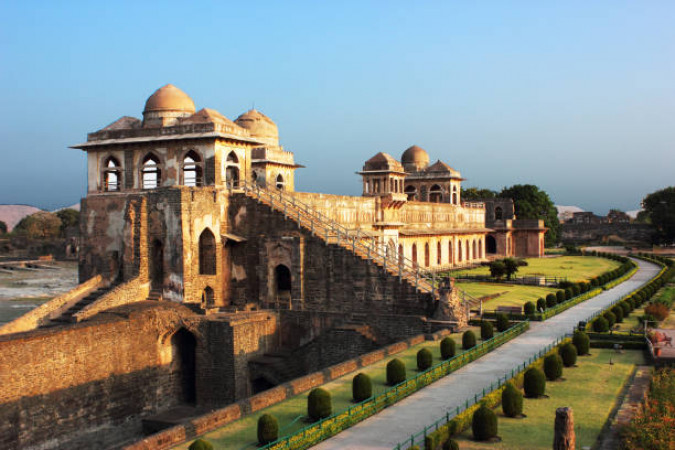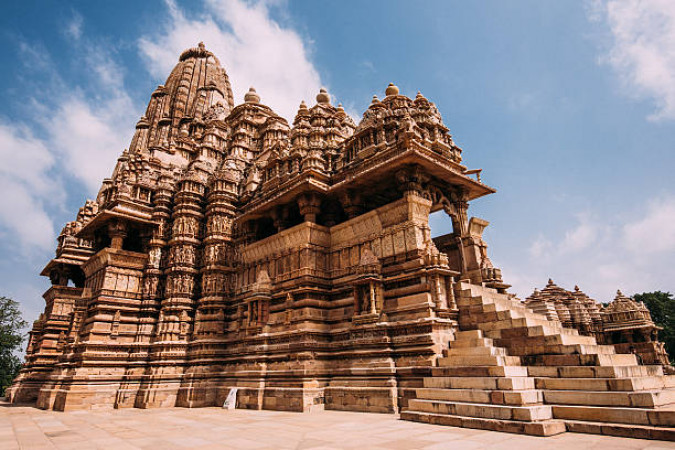Jabalpur
Duration
2 to 4 Days
2 to 4 Days
Best time to visit
Oct-Mar
Oct-Mar
Theme
Hill Station, Adventure, Heritage, Waterfront
Hill Station, Adventure, Heritage, Waterfront
Jabalpur Travel Guide
Jabalpur, located in central India, is a city known for its historical significance, breathtaking landscapes, and vibrant culture. Situated on the banks of the Narmada River, Jabalpur is famous for its marble rocks, waterfalls, and temples, making it a popular destination for nature lovers and history enthusiasts alike.Top Attractions in Jabalpur
- Marble Rocks
- Dhuandhar Falls
- Bhedaghat
- Madan Mahal Fort
- Rani Durgavati Museum
Jabalpur is Famous for
Marble Rocks and Dhuandhar Falls are the highlights of Jabalpur, attracting visitors from all over the world for their natural beauty and unique geological formations.Top Attractions in Jabalpur
- Explore the stunning Marble Rocks on a boat ride
- Witness the powerful Dhuandhar Falls
- Visit the historical Madan Mahal Fort
- Experience the tranquility of Bhedaghat
What's Great about Travelling to Jabalpur?
- Rich history and cultural heritage
- Breathtaking natural landscapes
- Unique geological formations
What's Not So Great about Travelling Jabalpur?
- Limited nightlife options
- Hot and humid weather during summers
- Language barrier for non-Hindi speakers
Travel Tips for Jabalpur
- Check visa requirements before planning your trip
- Use public transportation or hire a local guide for convenience
- Stay hydrated and carry sunscreen during hot weather
Important Jabalpur trip information
- Ideal Duration: 3-4 days
- Best Time to Visit: October to March
- Nearby Airports and Railway Stations: Jabalpur Airport and Jabalpur Junction
Top 10 Places to visit in Jabalpur
Per Person
32,025
*EXCLUDING APPLICABLE TAXES 4.9 Ratings
( 200 Reviews )
( 200 Reviews )
FAQ's on Jabalpur
Q1: What is the best time to visit Jabalpur?
The best time to visit Jabalpur is during the winter months from November to February when the weather is pleasant and ideal for exploring the city's attractions like Bhedaghat, Dhuandhar Falls, and Marble Rocks. Avoid visiting during the monsoon season from July to September due to heavy rainfall that can disrupt travel plans. Summers from March to June can be hot and humid, but this time is suitable for wildlife enthusiasts to visit nearby national parks.
Q2: Do I need a visa to travel to Jabalpur?
Most visitors to India require a visa, including those traveling to Jabalpur. Tourists can apply for an e-Visa online, which allows for a stay of up to 60 days for tourism purposes. Make sure to check the latest visa requirements and any special conditions based on your nationality before planning your trip to Jabalpur.
Q3: What are the must-visit attractions in Jabalpur?
Jabalpur boasts several must-visit attractions, including the iconic Marble Rocks at Bhedaghat, the majestic Dhuandhar Falls, the historical Chausath Yogini Temple, and the wildlife-rich Kanha National Park. Don't miss the Rani Durgavati Museum for a glimpse into the region's history and culture.
Q4: Is Jabalpur a safe place to travel?
Jabalpur is generally a safe destination for travelers, but like any other city, it's important to stay cautious and aware of your surroundings. Avoid isolated areas at night, take necessary precautions with your belongings, and follow basic safety practices. Stay informed about any current travel advisories before your trip.
Q5: What is the local currency in Jabalpur and can I use credit cards?
The local currency in India is the Indian Rupee (INR). ATMs are widely available in Jabalpur for cash withdrawals, and credit cards are accepted at most hotels, restaurants, and larger stores. However, it's advisable to carry some cash for smaller establishments and local markets.
Q6: What is the local cuisine like in Jabalpur?
Jabalpur offers a diverse culinary experience with a mix of traditional Indian dishes and local specialties. Don't miss trying the famous Bhutte Ka Kees (spiced grated corn), Poha (flattened rice), and Sabudana Khichdi (tapioca pearls cooked with spices). Vegetarian options are abundant, reflecting the region's food culture.
Q7: What transportation options are available in Jabalpur?
Jabalpur has various transportation options, including auto-rickshaws, cycle rickshaws, and local buses for getting around the city. Taxis and app-based cab services are also available for more convenience. For longer journeys, consider hiring a private car or using intercity buses.
Q8: Are there any cultural norms or etiquette I should be aware of when visiting Jabalpur?
When visiting Jabalpur, it's important to respect local customs and traditions. Dress modestly when visiting religious sites, remove your shoes before entering temples, and ask for permission before taking photographs of locals. Greeting people with a "Namaste" is appreciated, and it's customary to use your right hand for eating and giving/receiving items.
Q9: I am a travel agent. How can I buy travel leads of Jabalpur?
Register yourself as a travel agent at agents.tripclap.com and then you can buy travel leads to Jabalpur once your account is approved. For more details contact our support team at +91-8069186564 or support@tripclap.com
